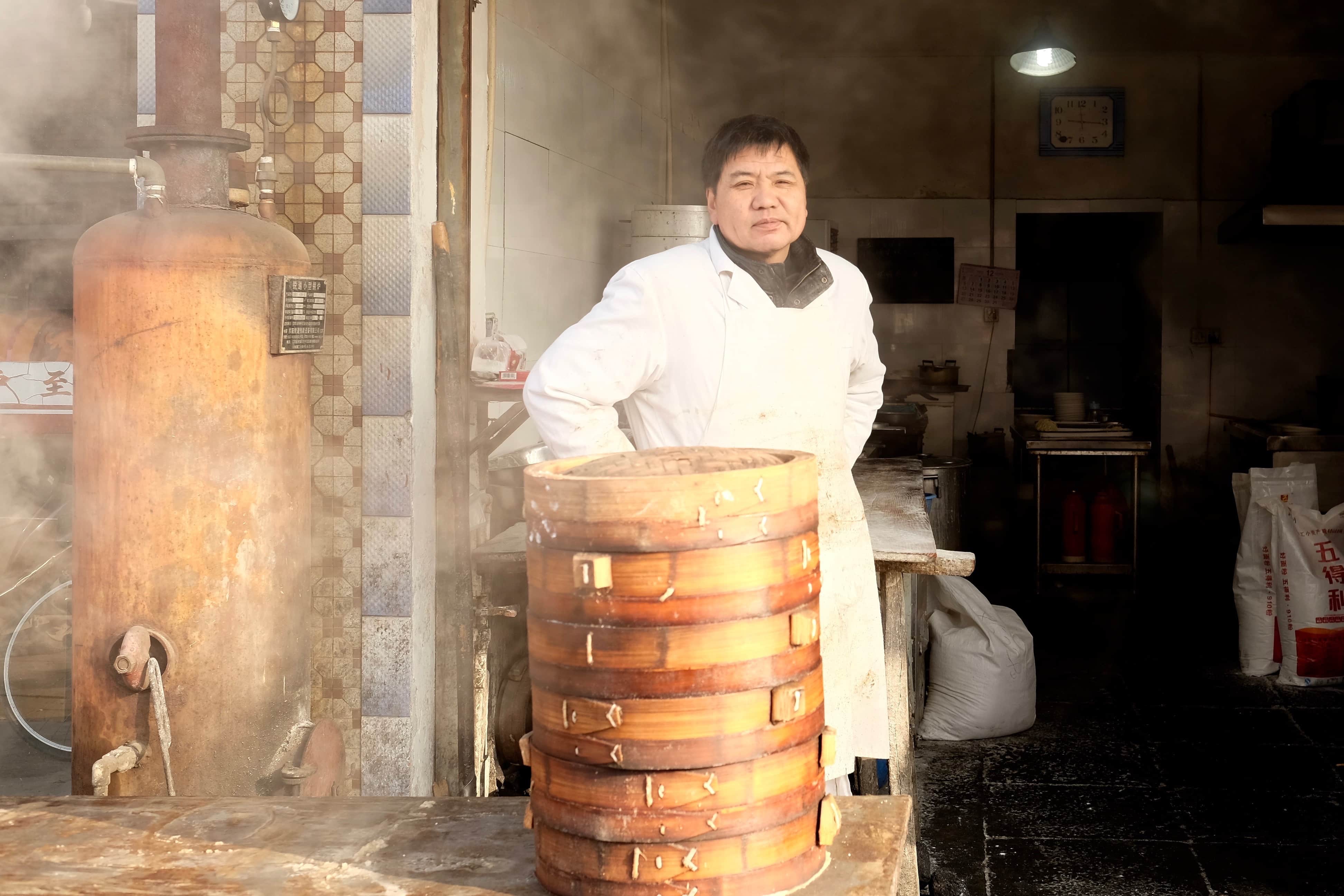家父厨房的故事
本文转载自Randomwire ,翻译使用Gengo服务。
Reposted from Randomwire , Chinese translation by Gengo .
After Christmas last year, I spent a couple of days in the small town of Jiaoxie (角斜), close to Nantong (南通), three hours west of Shanghai.
Nantong is an important river port located on the northern bank of the Yangtze River whose prosperity was catalyzed by a local industrialist, Zhang Jian (张謇), who founded Nantong’s first cotton mills in 1899. Nantong has remained an important center for the textile industry.
去年圣诞节过后,我在一个名叫角斜的小镇待了几天。小镇就在南通附近,从上海往西三小时路程。
南通是长江北岸的一个重要河港。它的繁荣得益于一位本地实业家张謇,他在 1899 年创办了南通的第一个纺织厂。从此,南通一直都是纺织行业的重要中心。
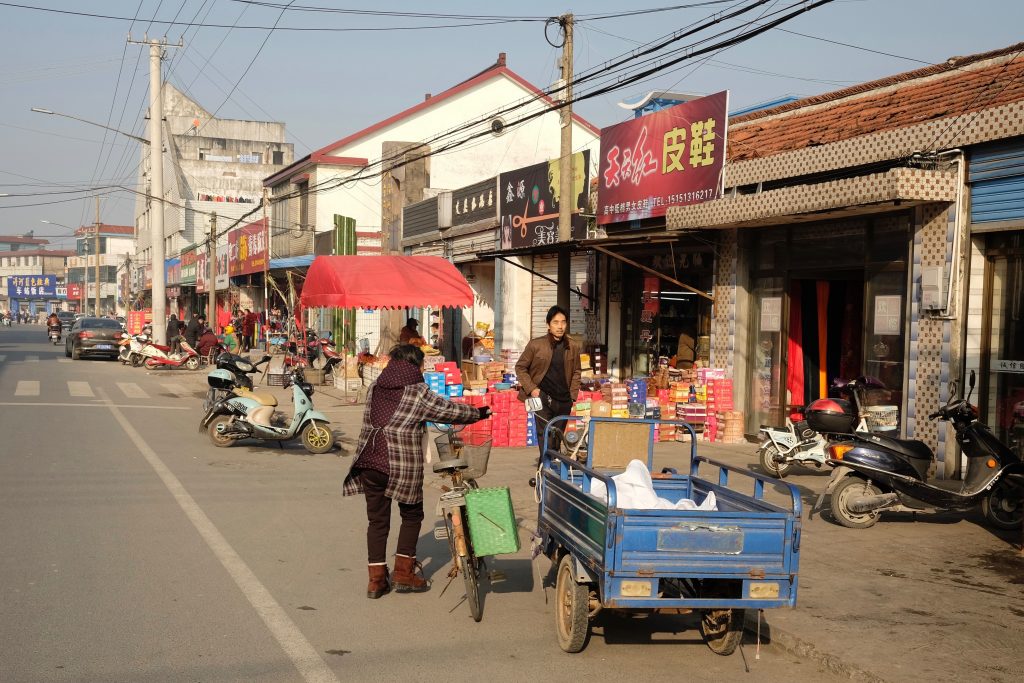
The main street in Jiaoxie is a hive of activity with small shops and restaurants spilling welcomingly out onto the pavements. Run by Mr. Wu and his extended family, one such establishment is Wang Wang Breakfast (旺旺早点), where tasty buns, wonton noodles and flatbread are the order of the day all year round.
角斜的主街热闹非凡,各色小店、餐馆热情洋溢地延伸到了门前的人行道上。其中一家就是吴师傅和他的大家庭共同经营的旺旺早点铺,全年售卖着美味的包子馒头、馄饨面和烧饼。
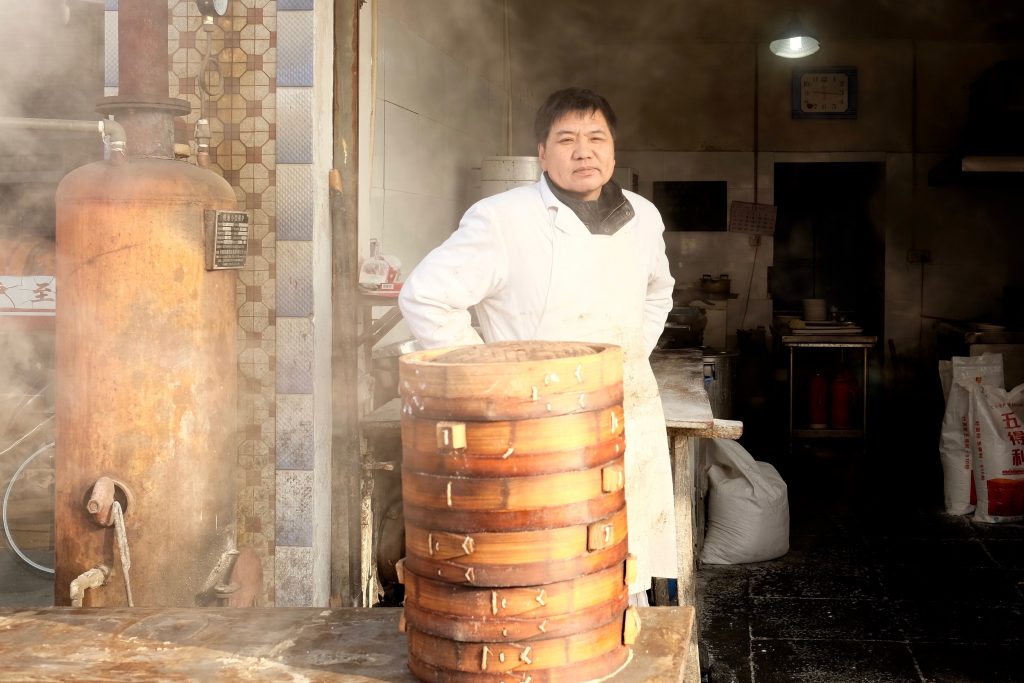
Work begins early for Mr. Wu who starts preparing at 4am each day, not particularly fun in the sub-zero temperatures during winter.
吴师傅每天一大清早就得开始工作。凌晨 4 点开始准备,这在气温零度以下的冬天可不是什么好玩的事儿。
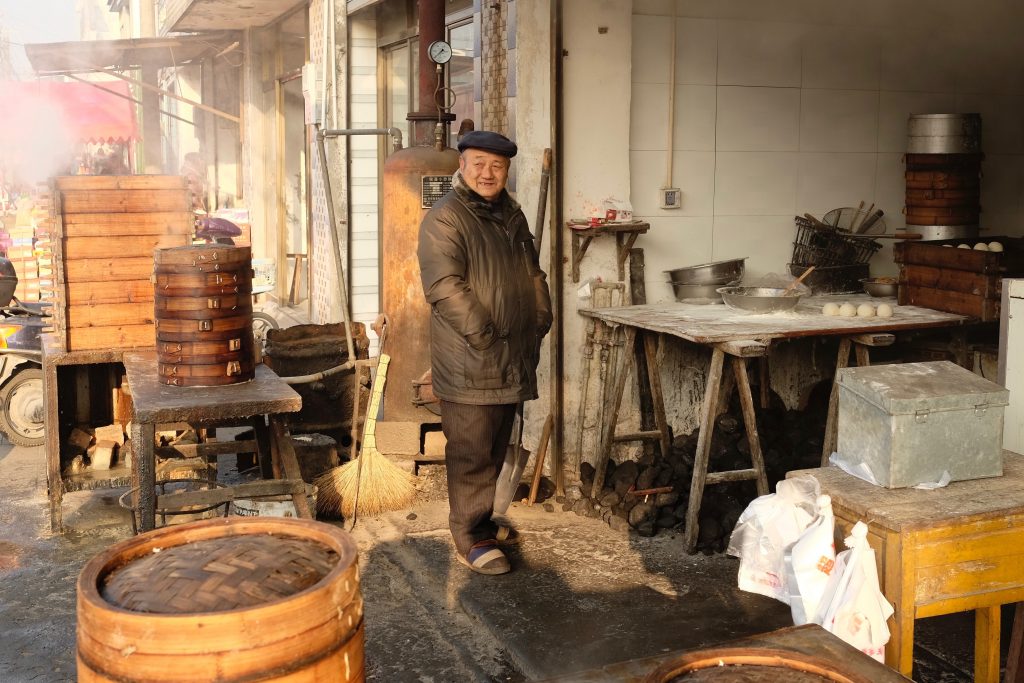
Piled high on tables dripping with condensation, savoury buns cook in wooden and bamboo steamers powered by a coal-fed boiler.
美味的馒头包子装在竹木制成的蒸笼里,高高摞在桌上,底下是烧煤的锅炉,水蒸气遇冷凝结成水,从桌上一点一点滴下来。
Locals mill around the entrance awaiting the tasty morsels while catching up with the latest town gossip.当地人围在门口,一边等待着美味的小吃,一边交换着小镇最新的八卦。
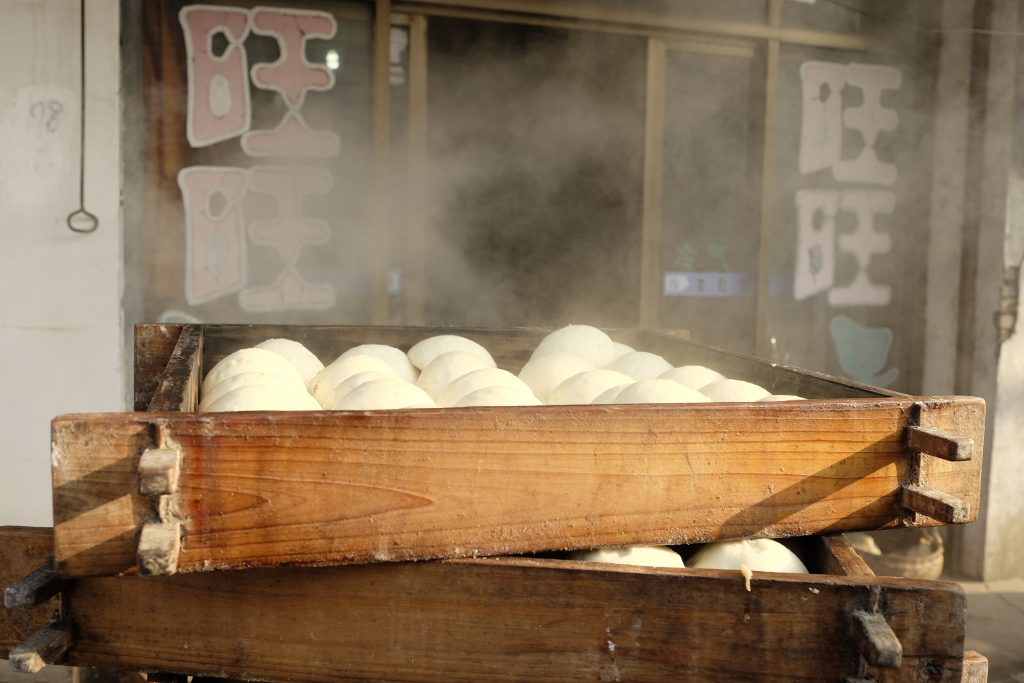
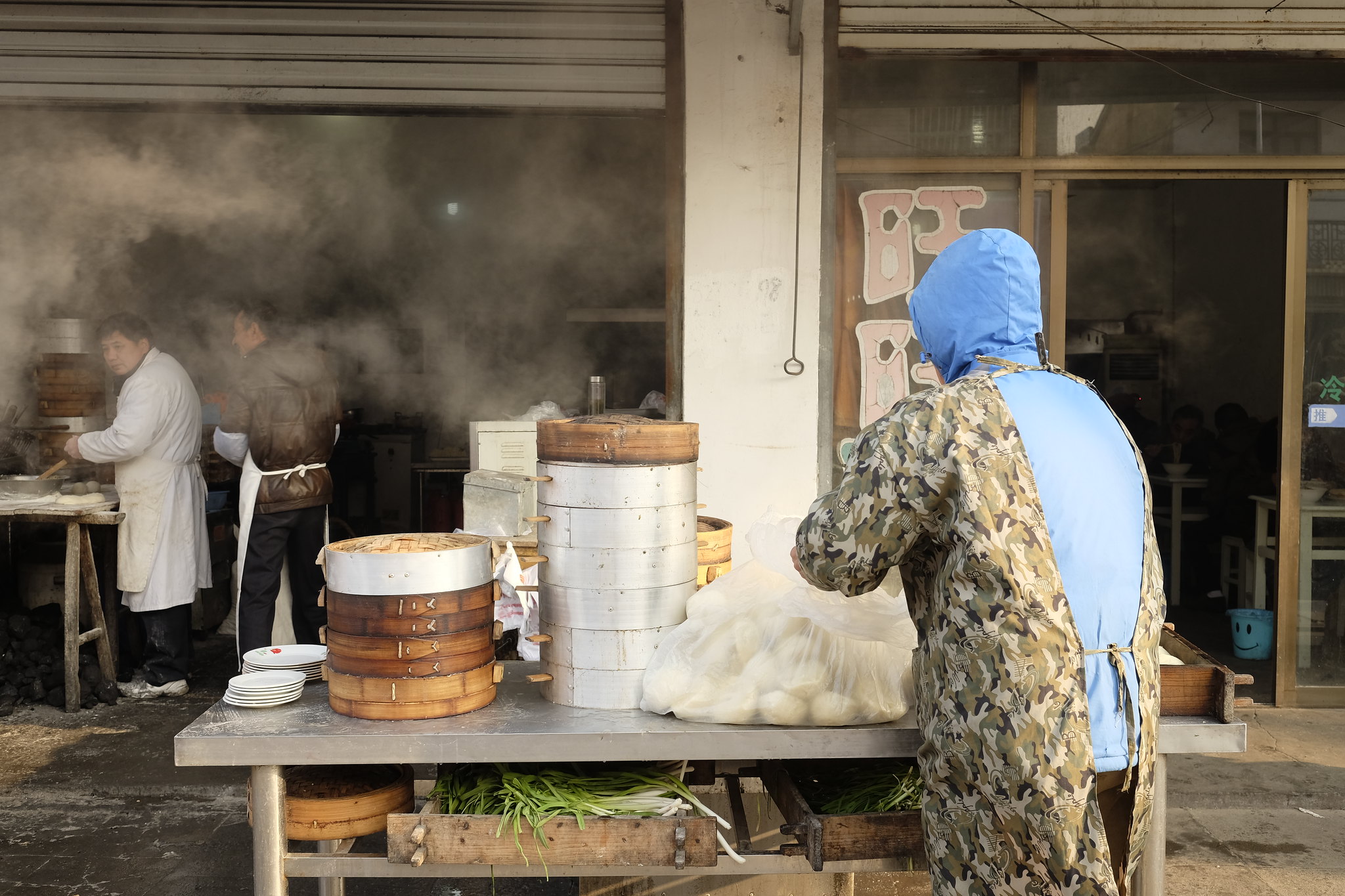
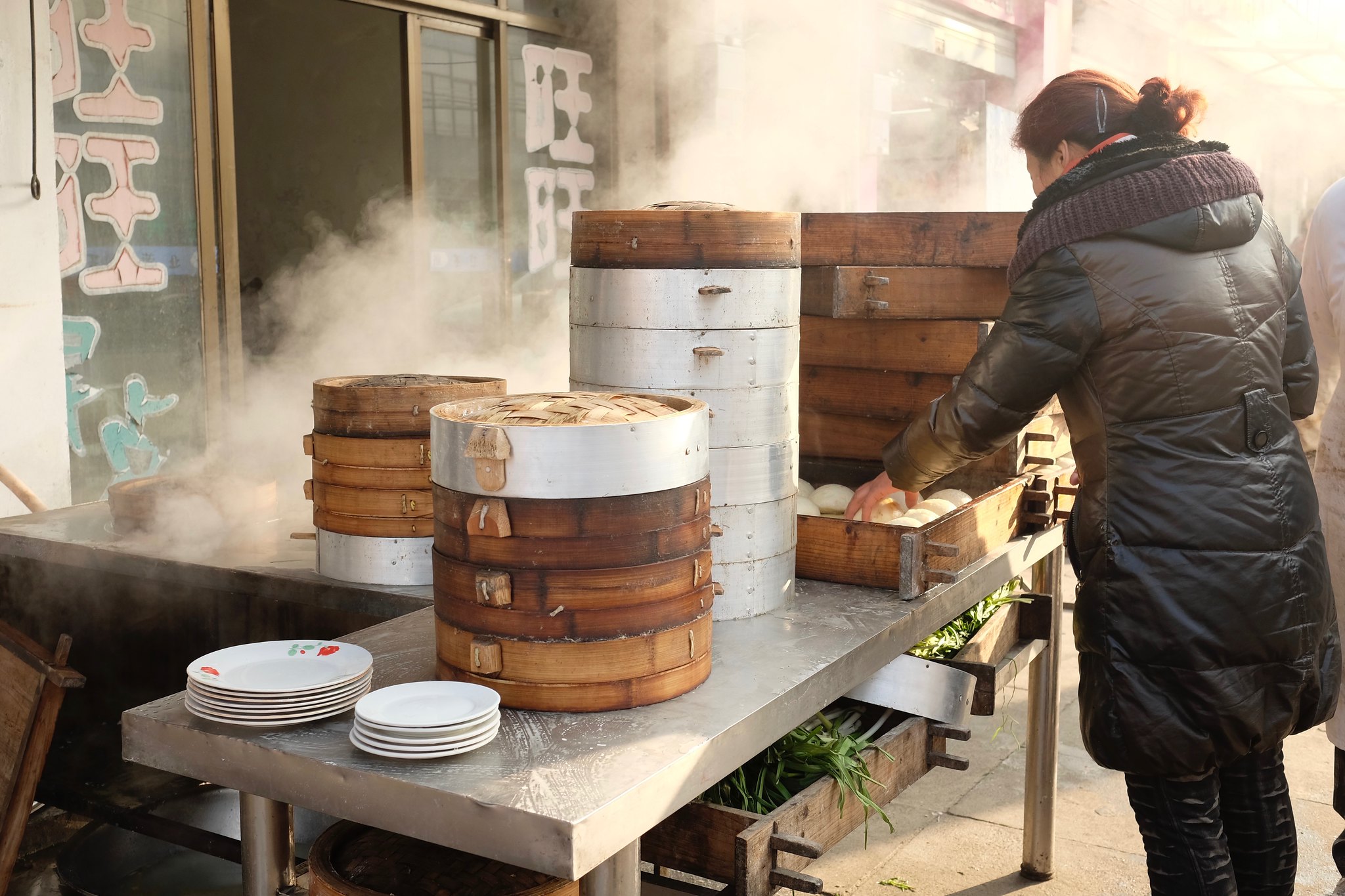
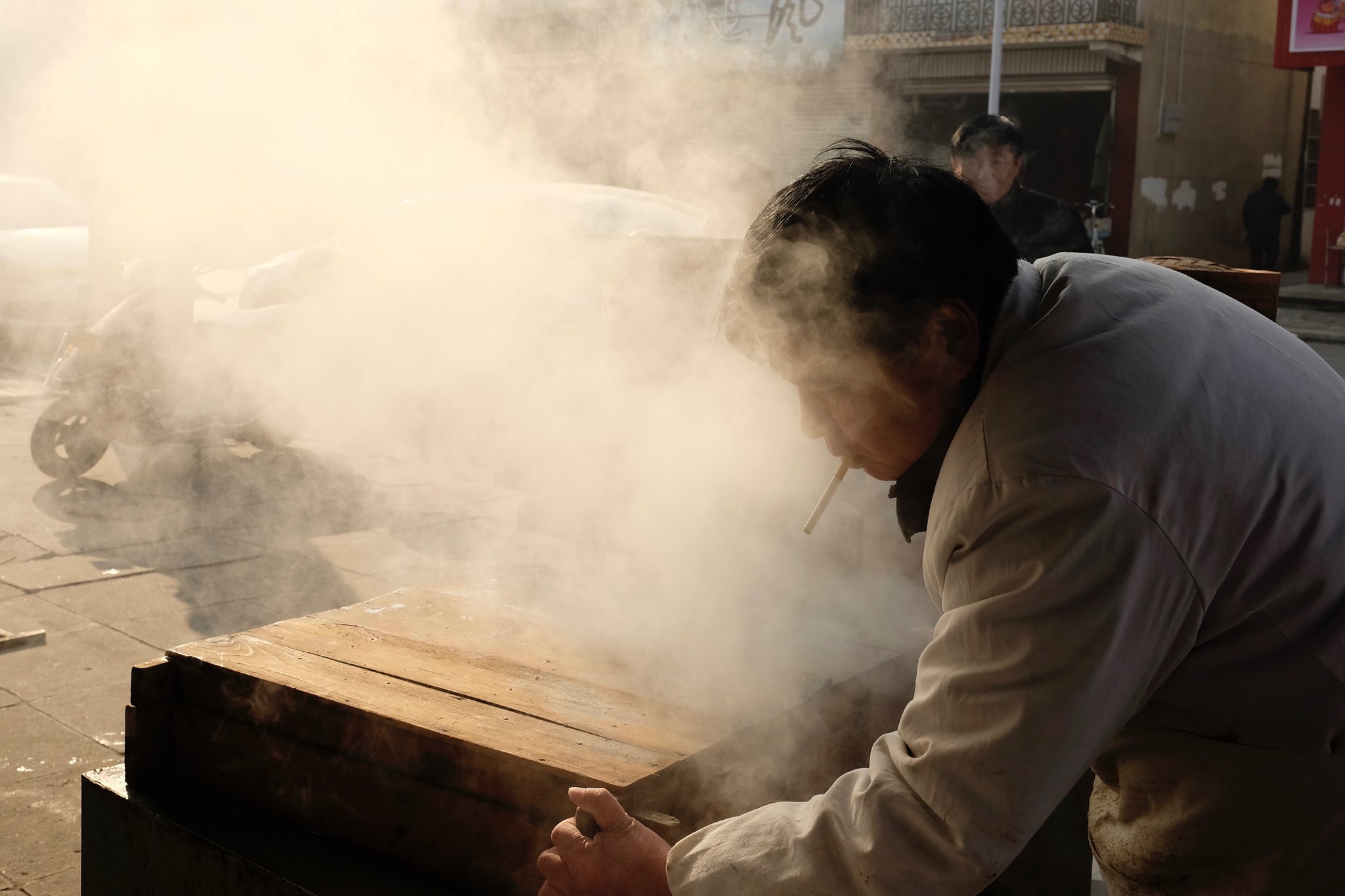
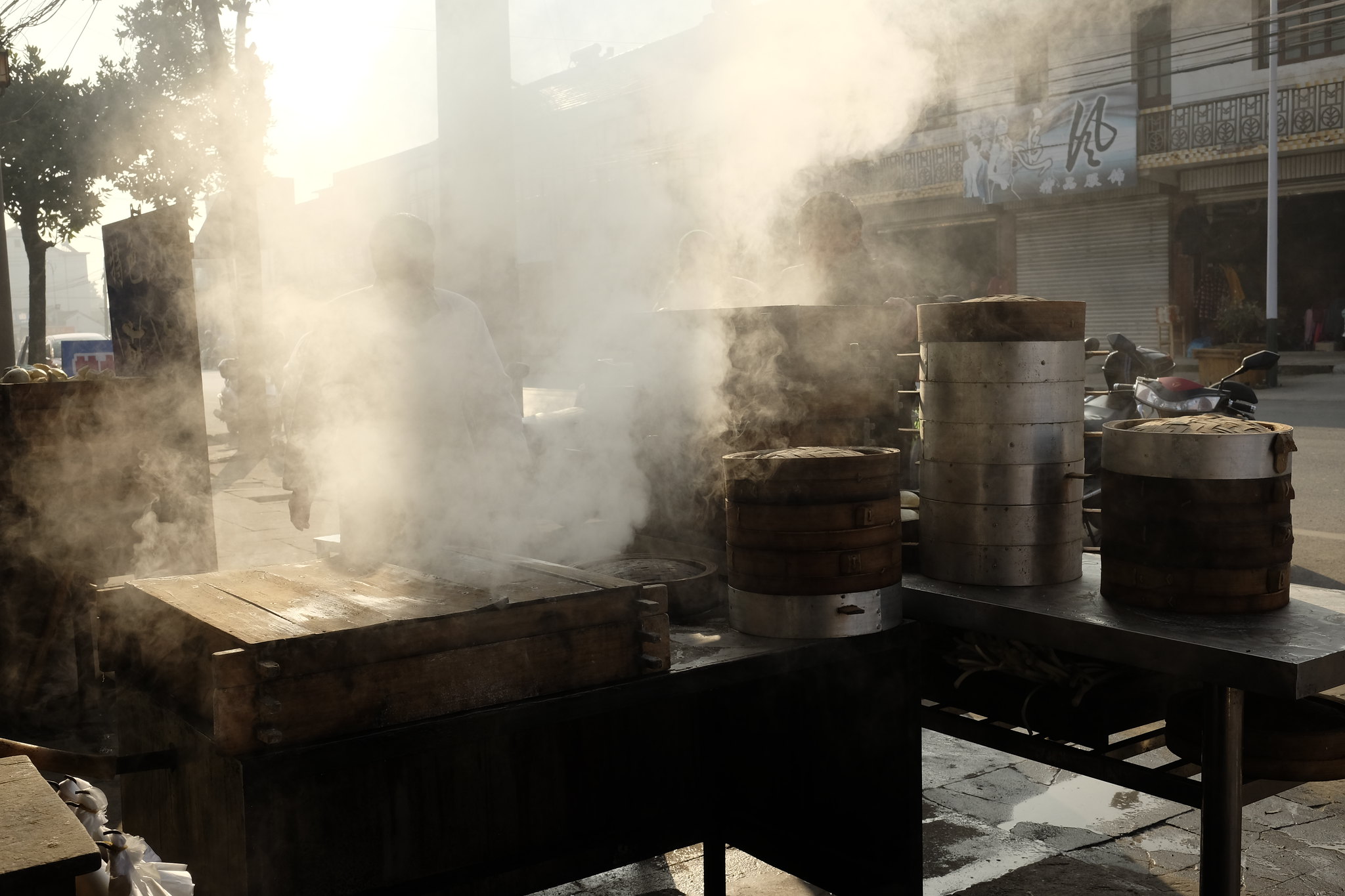
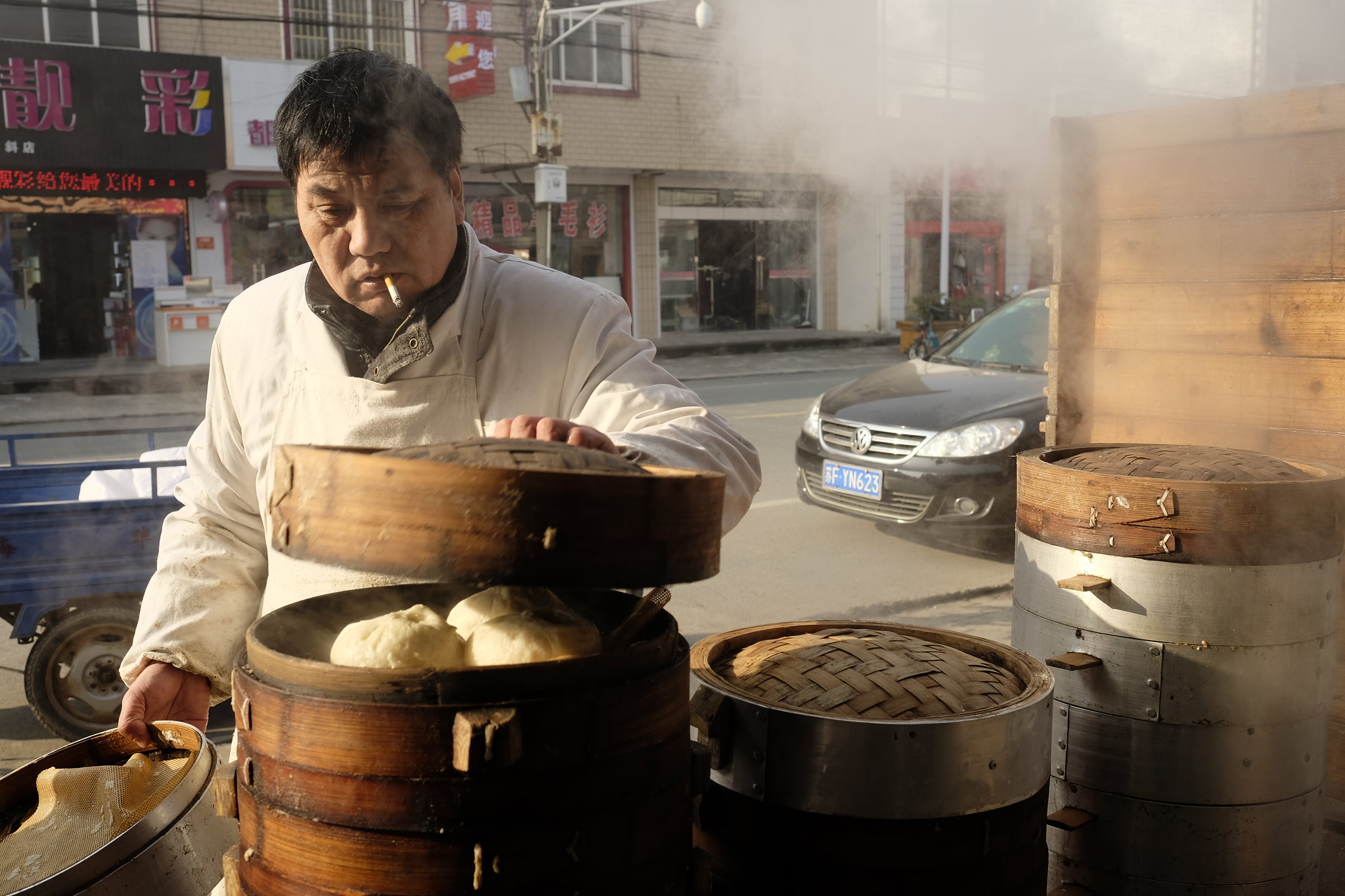
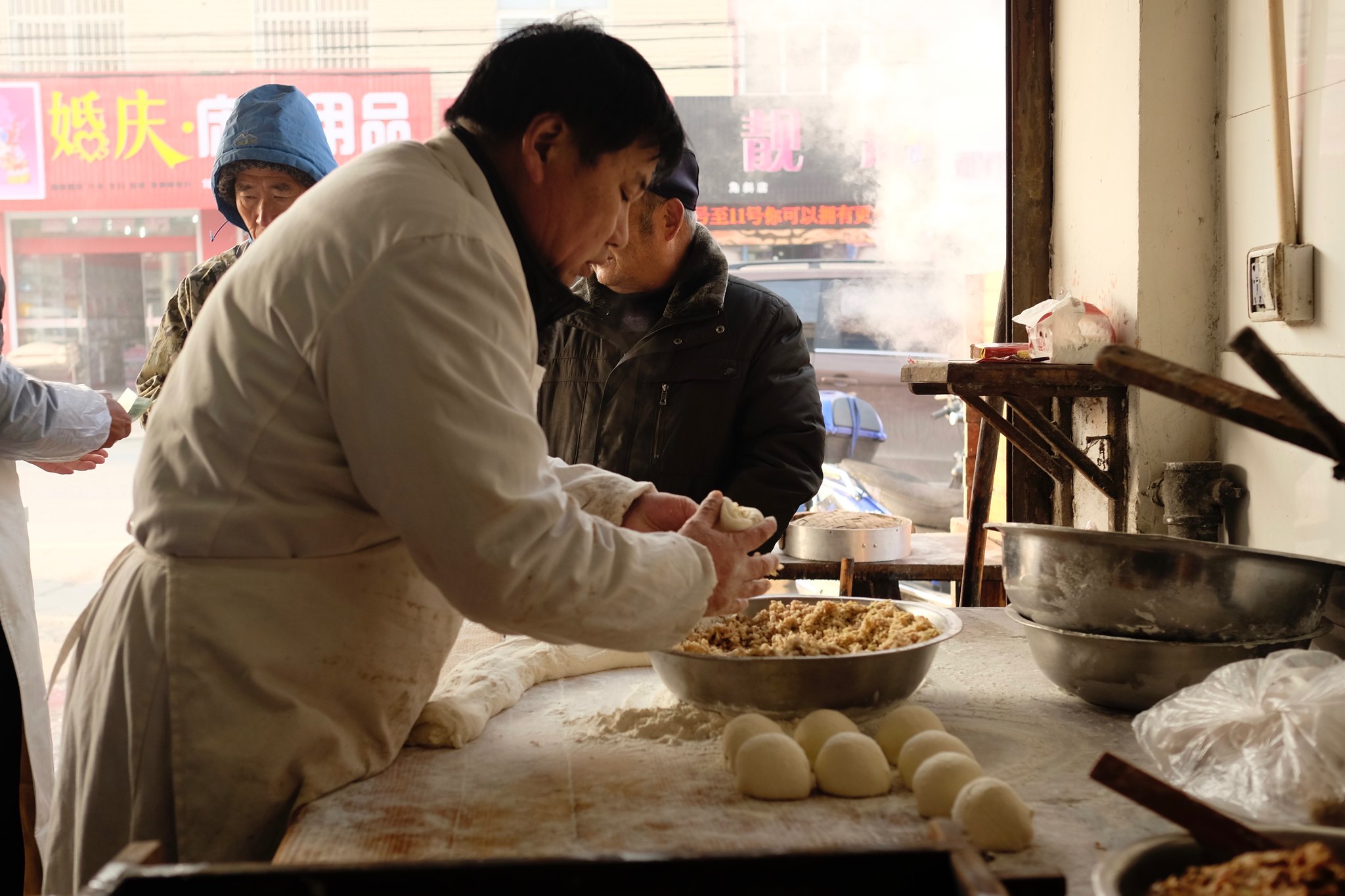
Everything is made by hand and, while the tools might be basic, the skills and techniques required have been honed over years of experience. Watching Mr. Wu form each lump of dough into a precisely formed bun is almost hypnotic!
所有食物都是手工制作。或许工具很简单,但是其中的手艺和技术都是经过长年累月磨练而成。看着吴师傅把一个个小面团捏成形状完美的包子简直能够催眠!
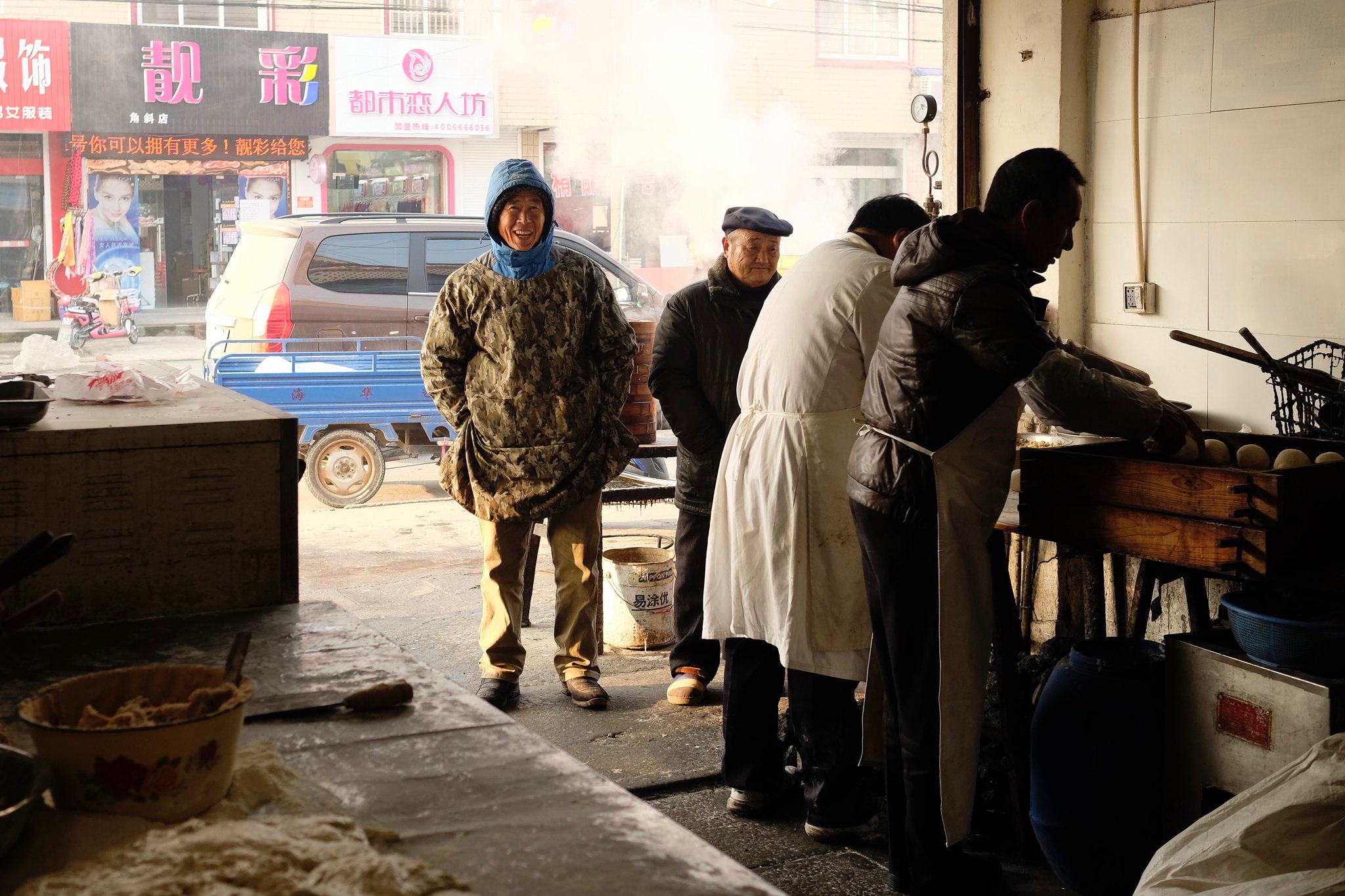
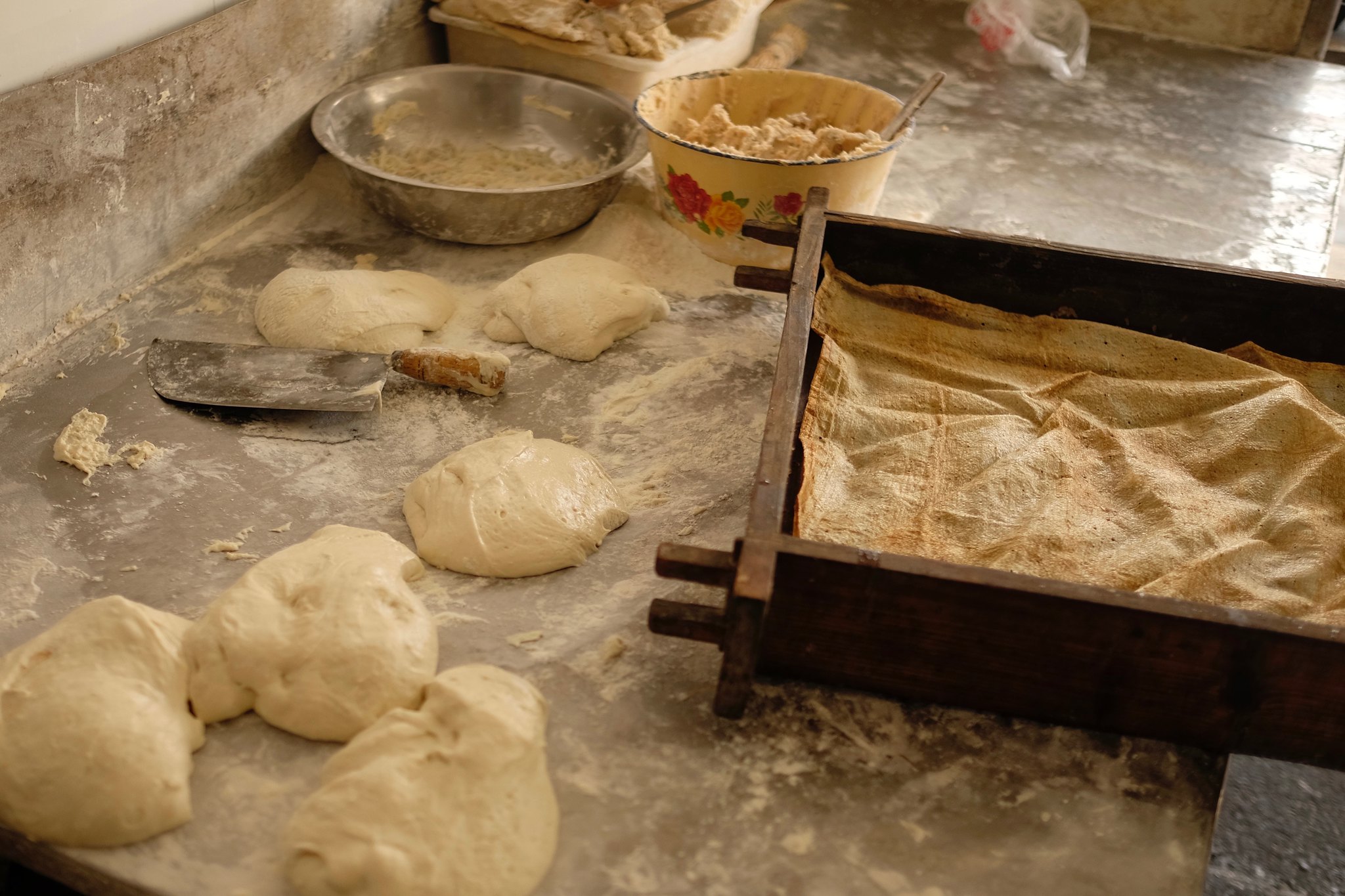
Flour, lye (used as a tenderiser) and minced pork are the main ingredients required.
面粉、碱(用作软化剂)和肉馅就是所需的主要原料。
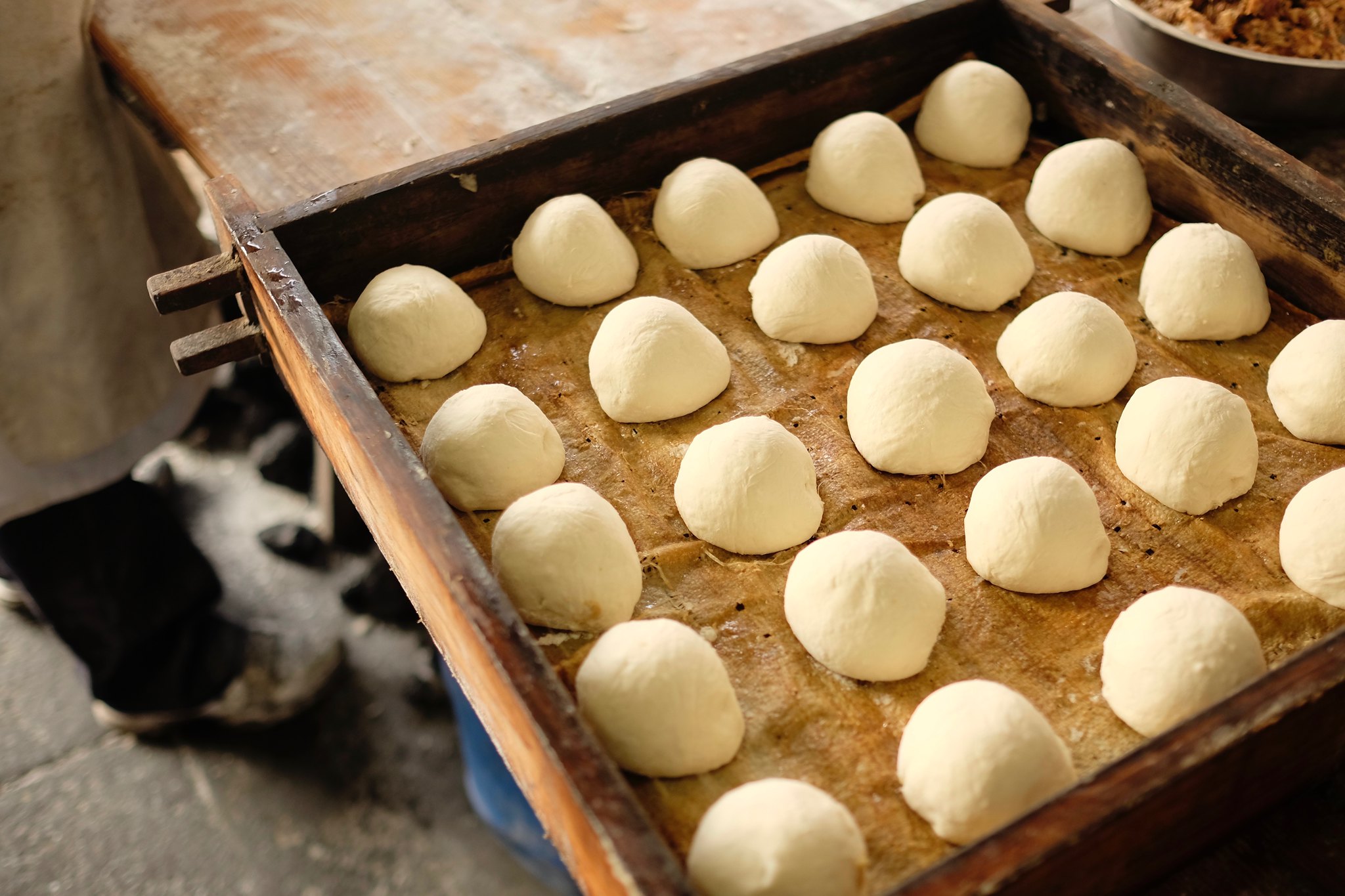
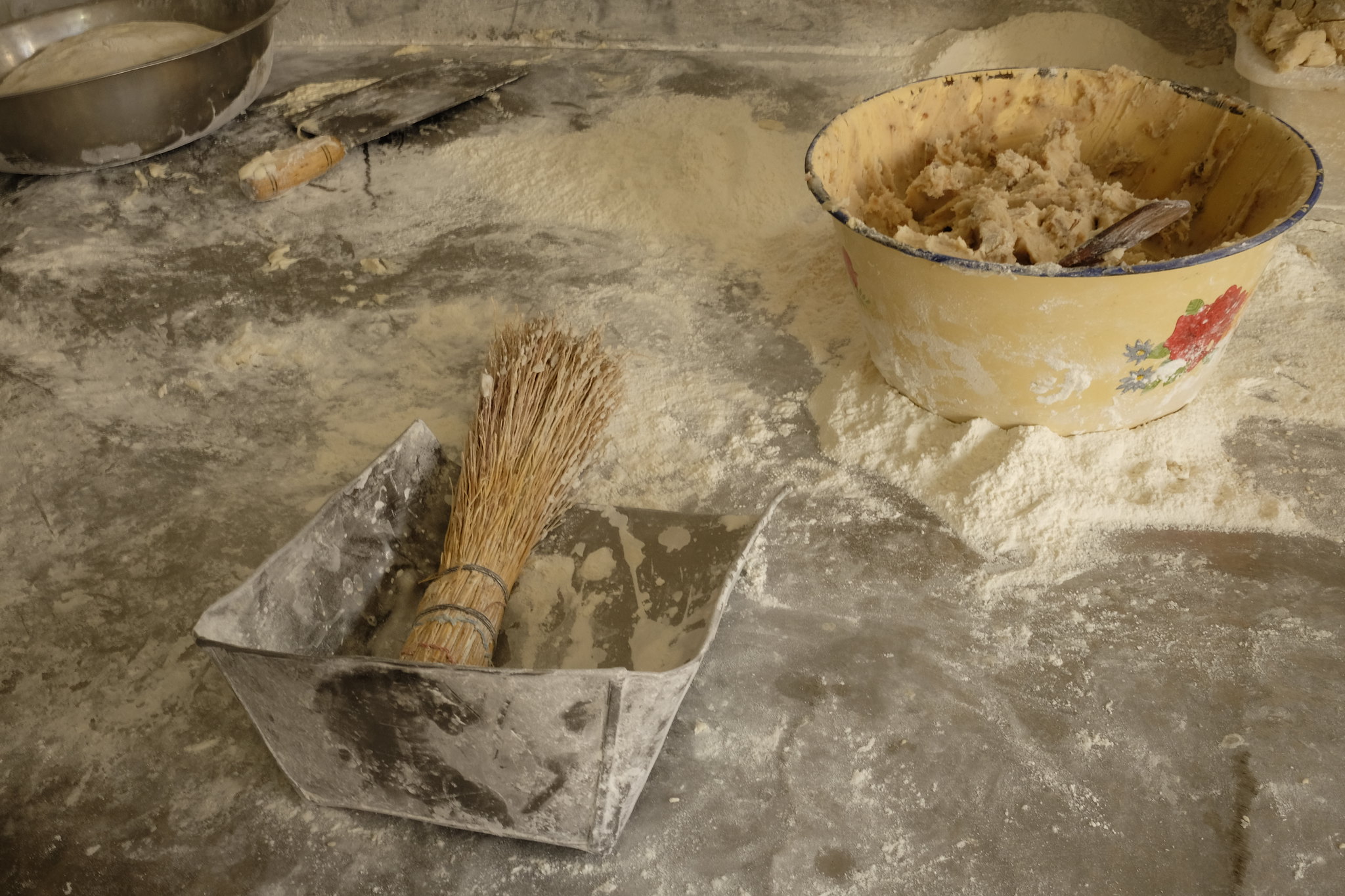
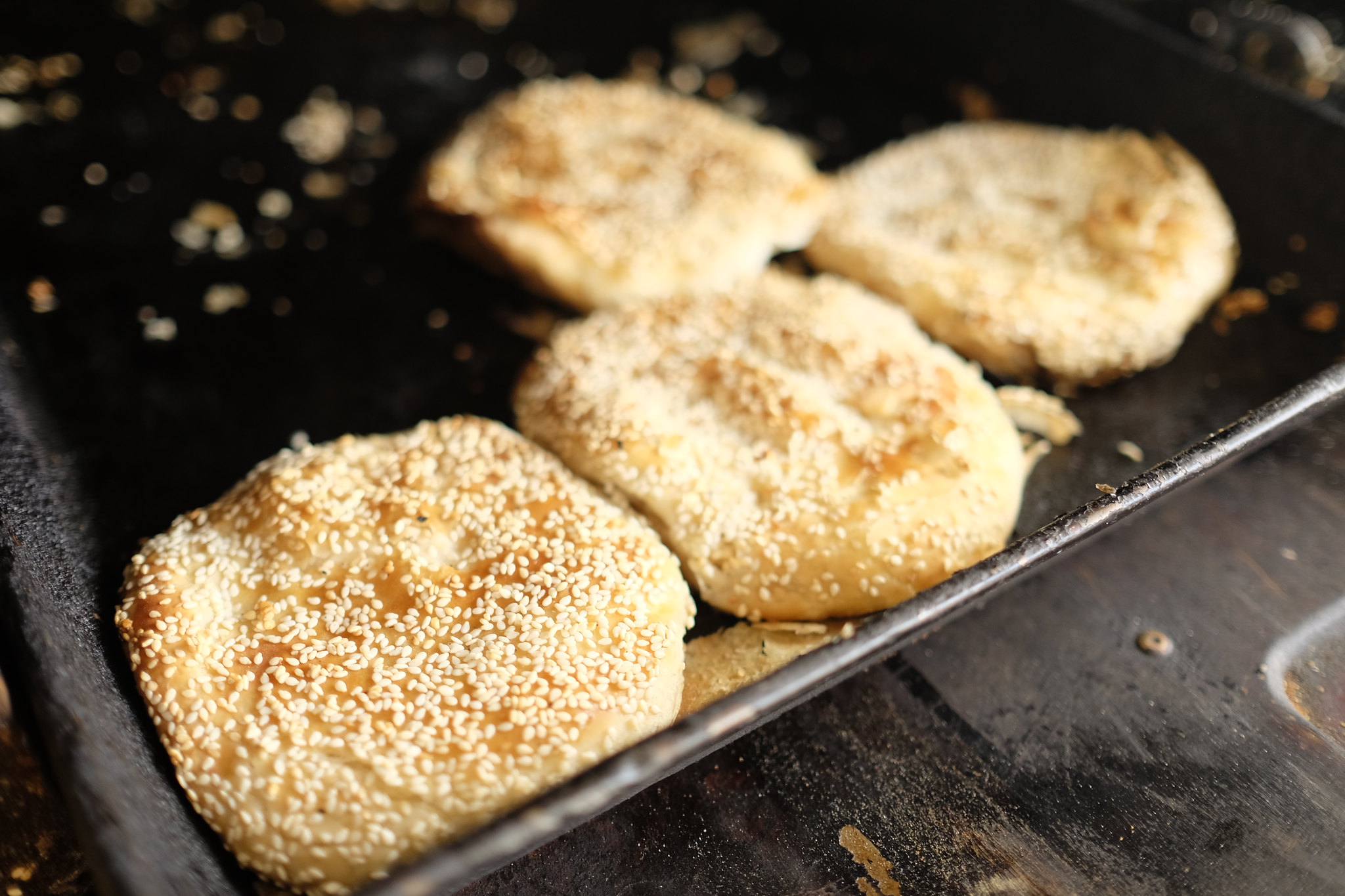
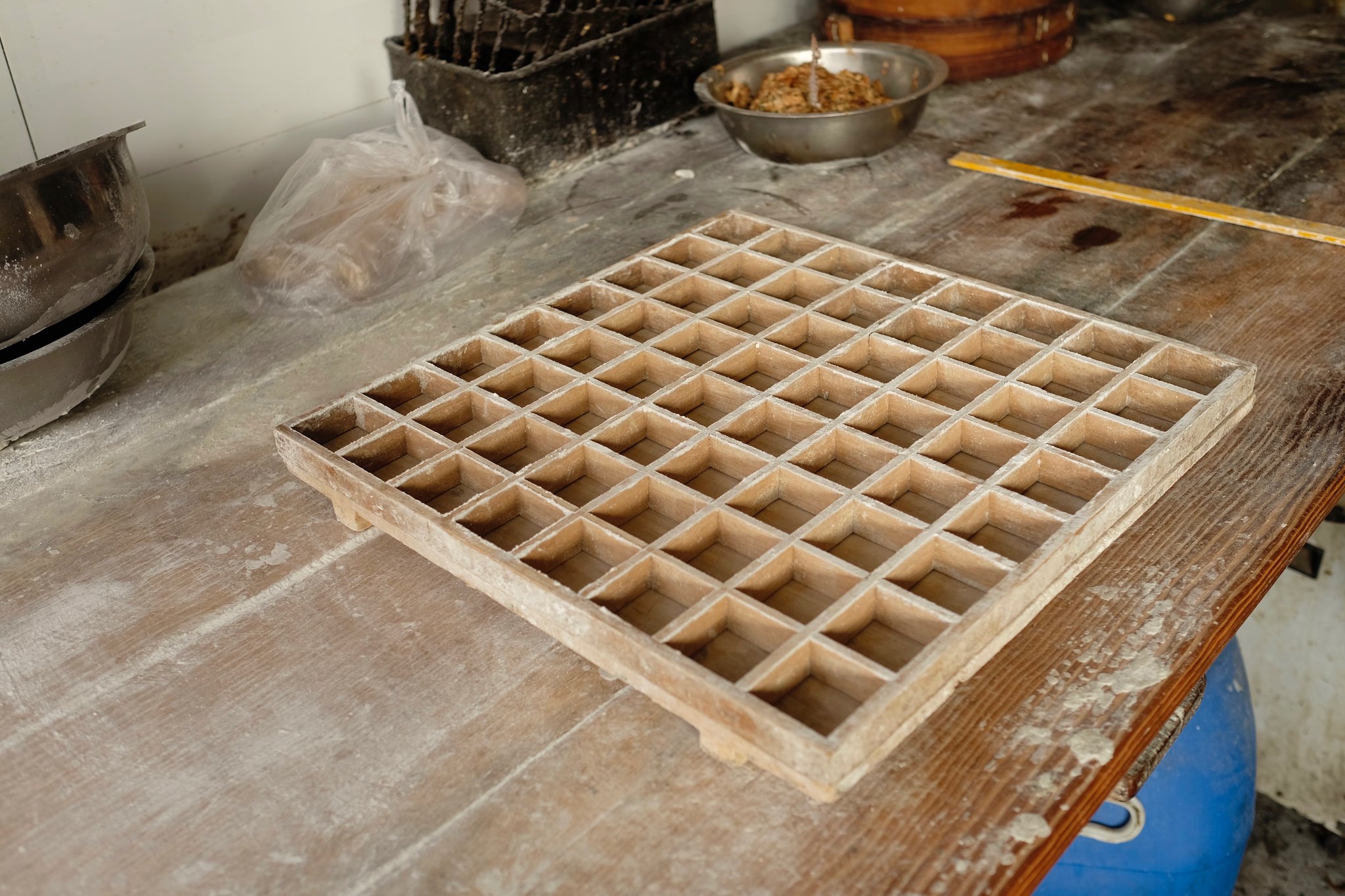
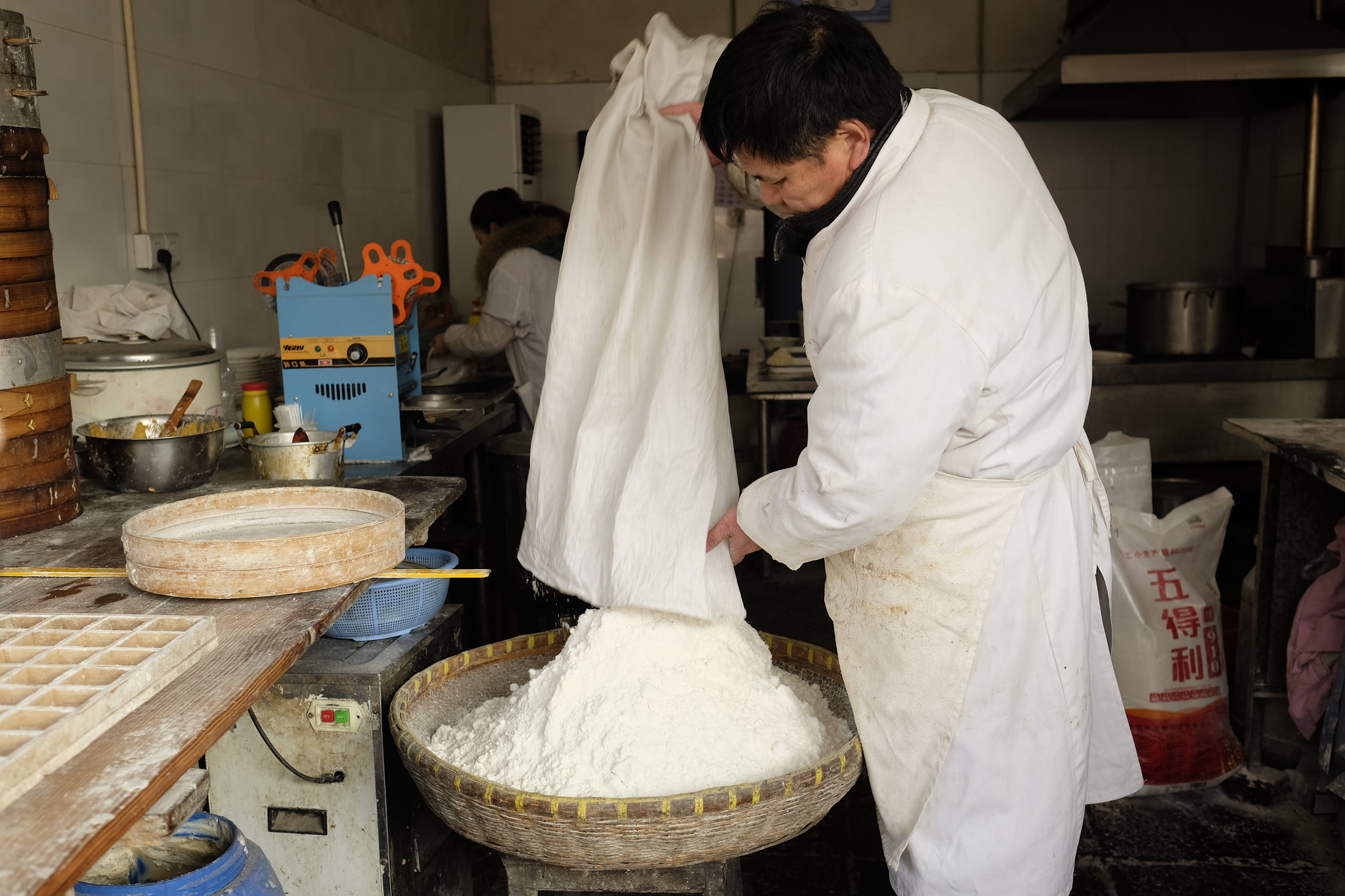
Nian gao (年糕), a type of rice cake, is made by mixing rice with glutinous rice and then steaming to cook.
年糕,一种大米做的糕点,是用大米和糯米混合蒸成。
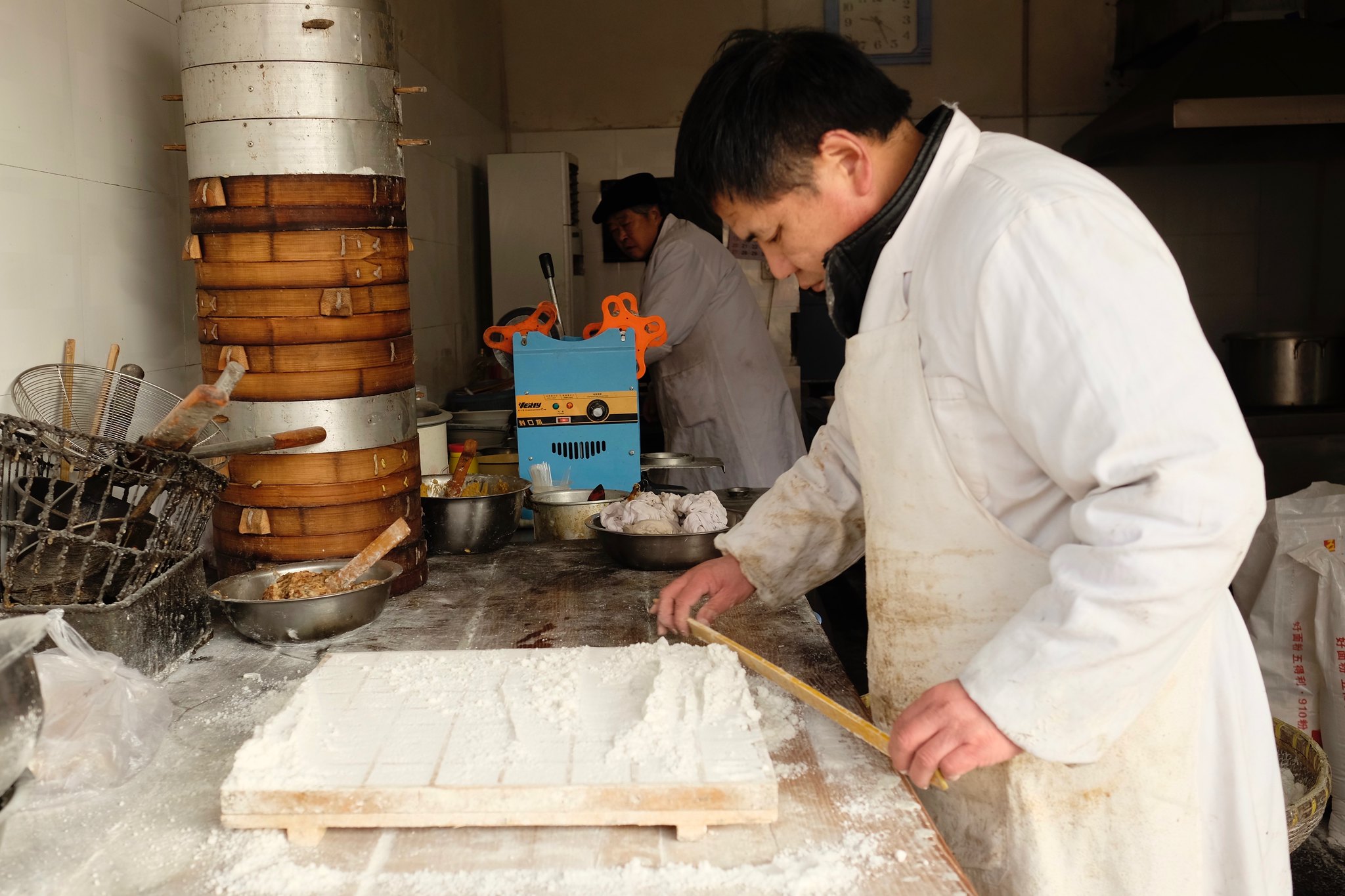
It is considered good luck to eat nian gao during Chinese New Year, because “nian gao” is a homonym for “higher year” (年年高升).
在新年吃年糕寓意吉祥,因为”年糕“与”年年高升“谐音。
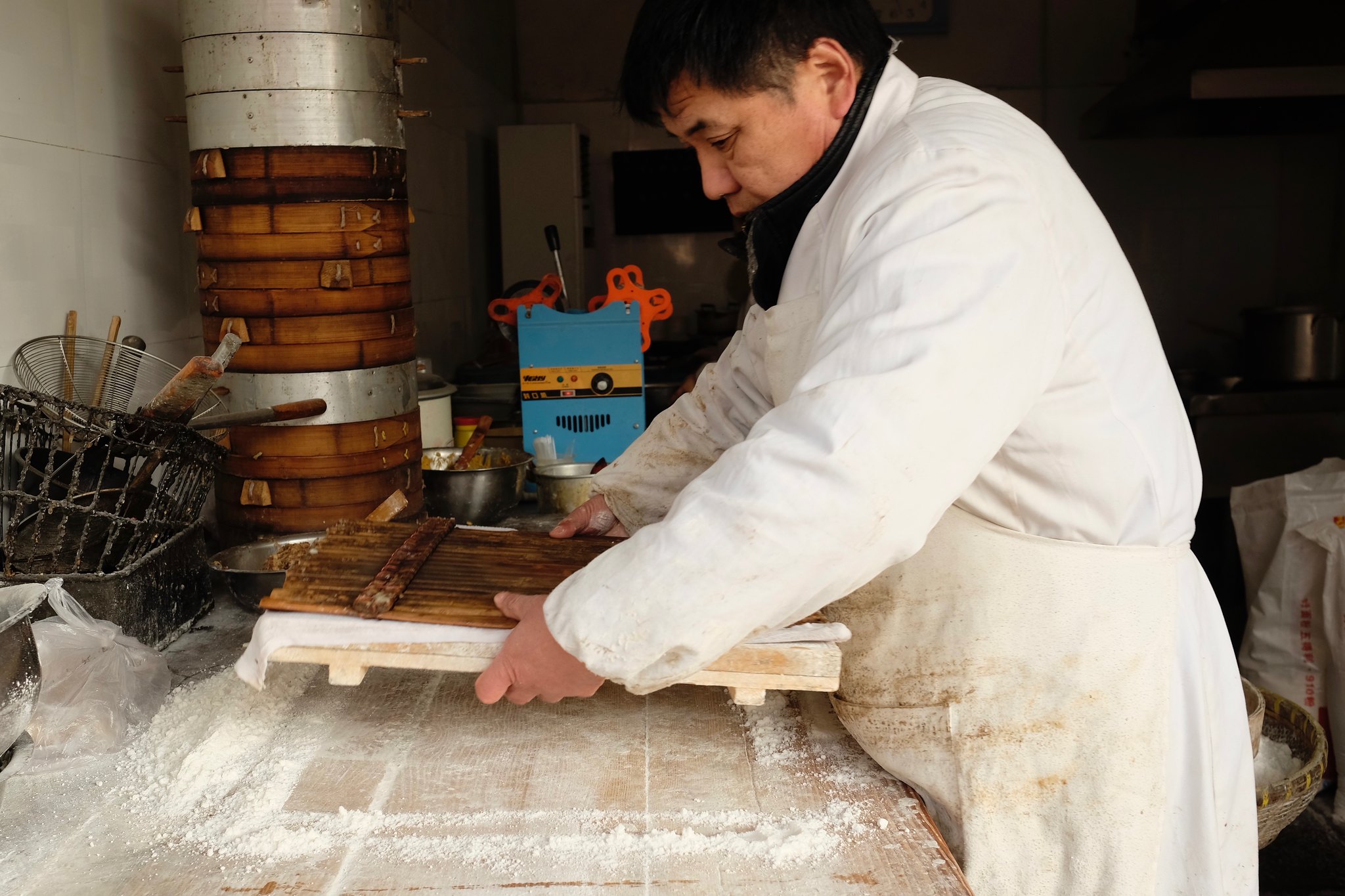
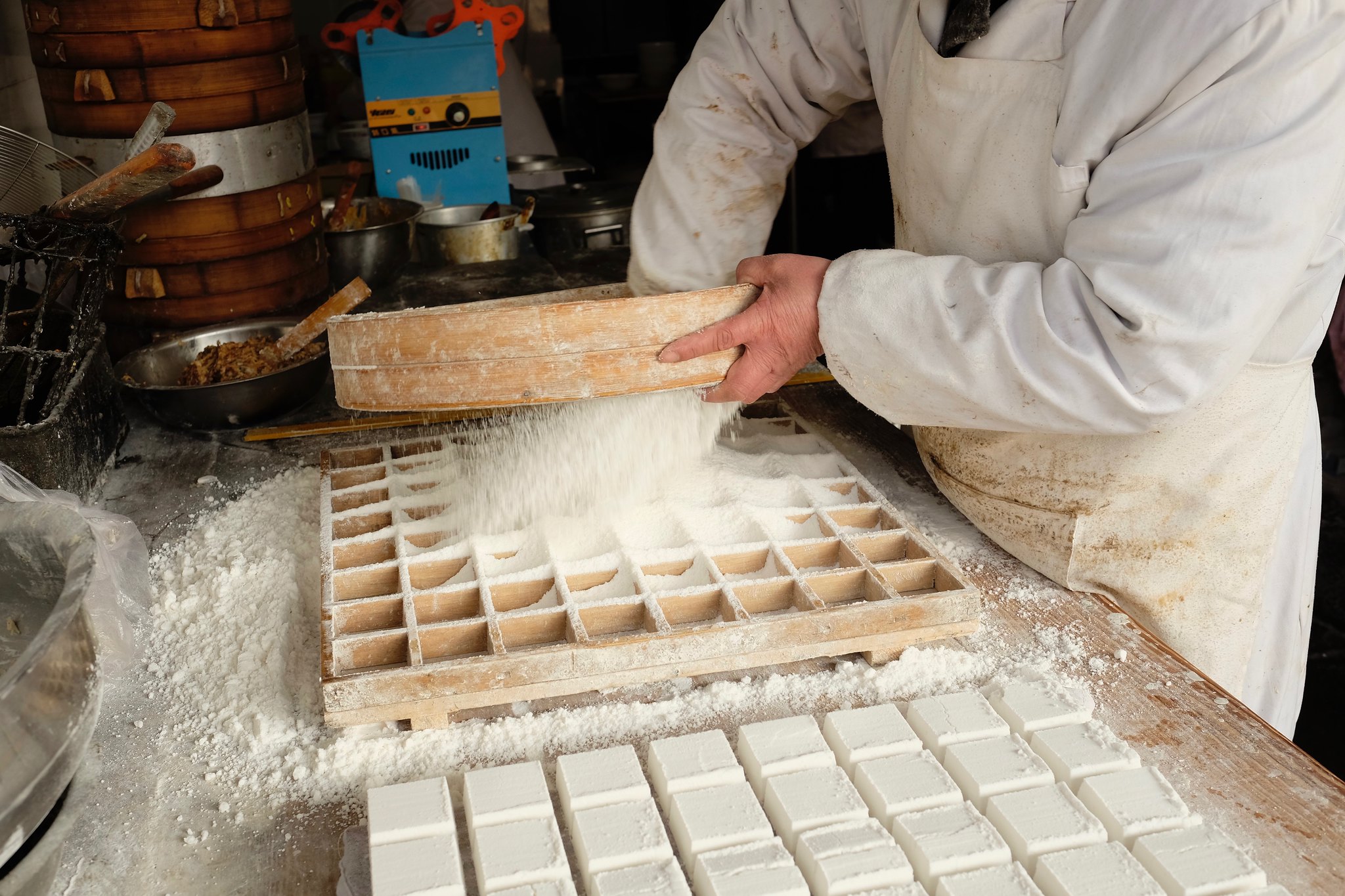
A wooden grid is used to form the rice powder into squares before placing on a damp cloth to steam. Sometimes they’re filled with sweet red bean paste.
用木格把米粉压成一个个正方形,然后放在湿布上蒸。有时里面还夹着甜红豆沙。
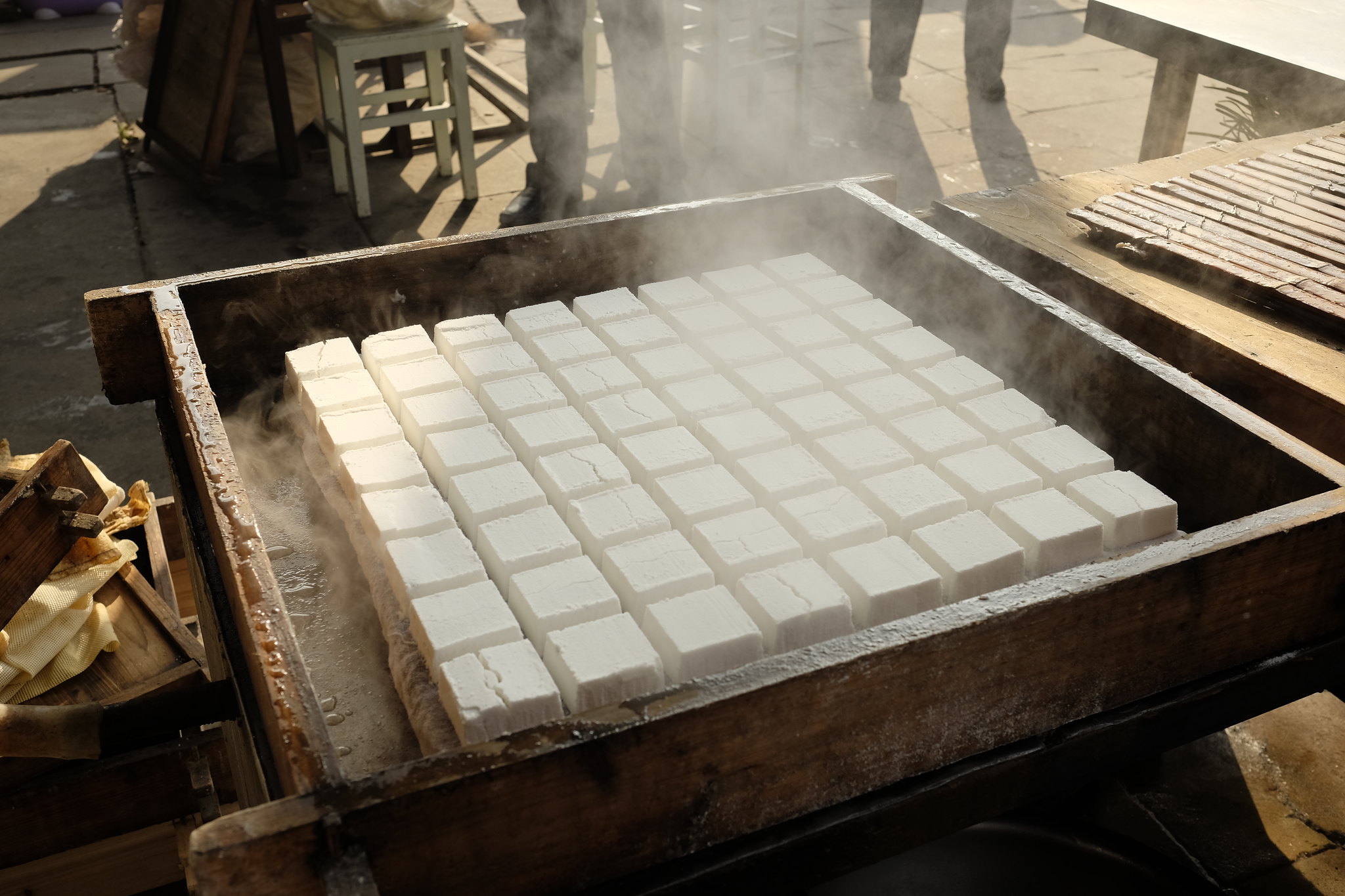
Youtube 视频请按需访问。
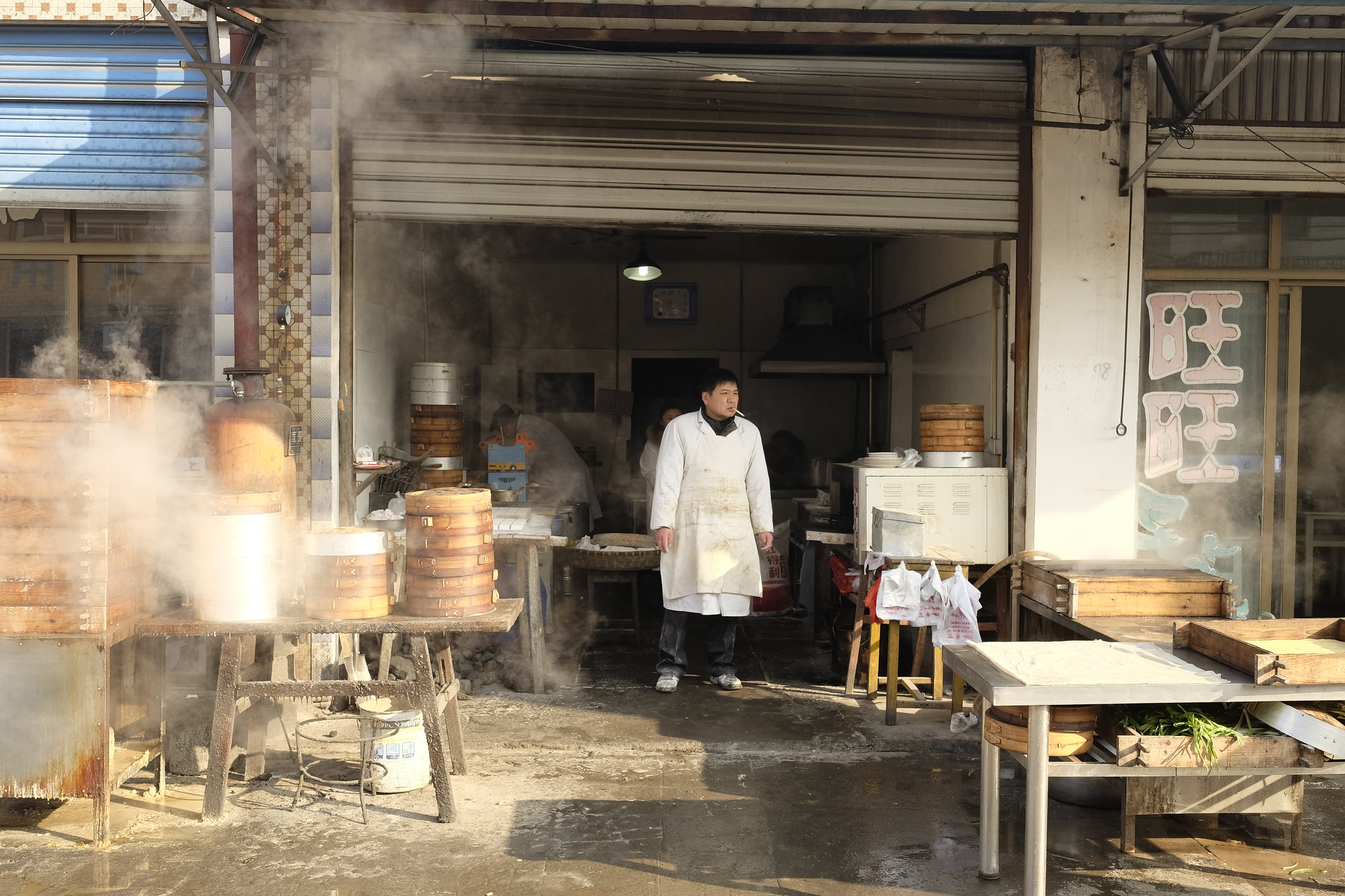
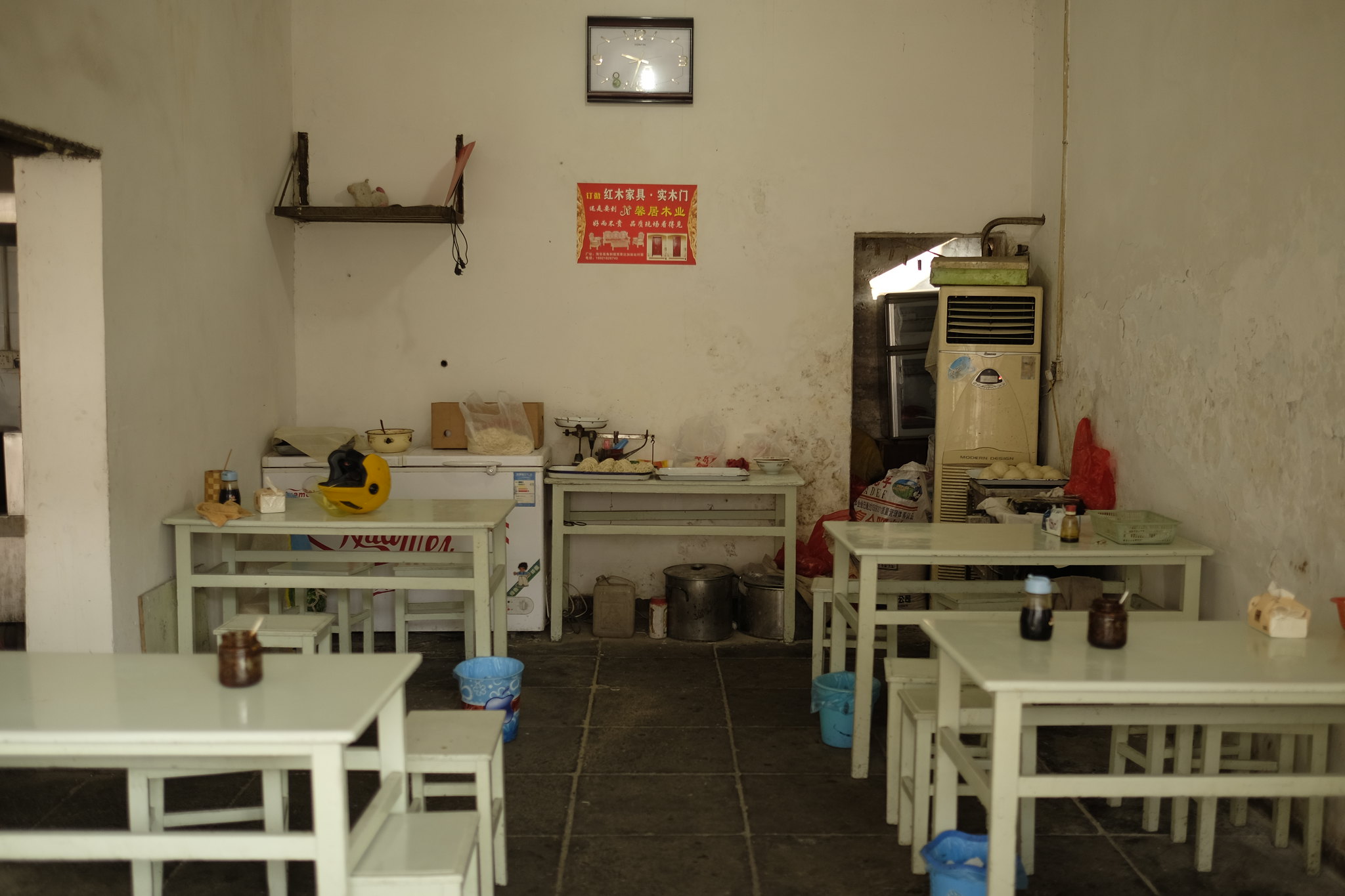
Inside a few wooden tables and stools are provided for customers. Note the jars of homemade hot chilli sauce!
店里有几张木桌和凳子给客人坐。看那一瓶瓶自制辣椒酱!
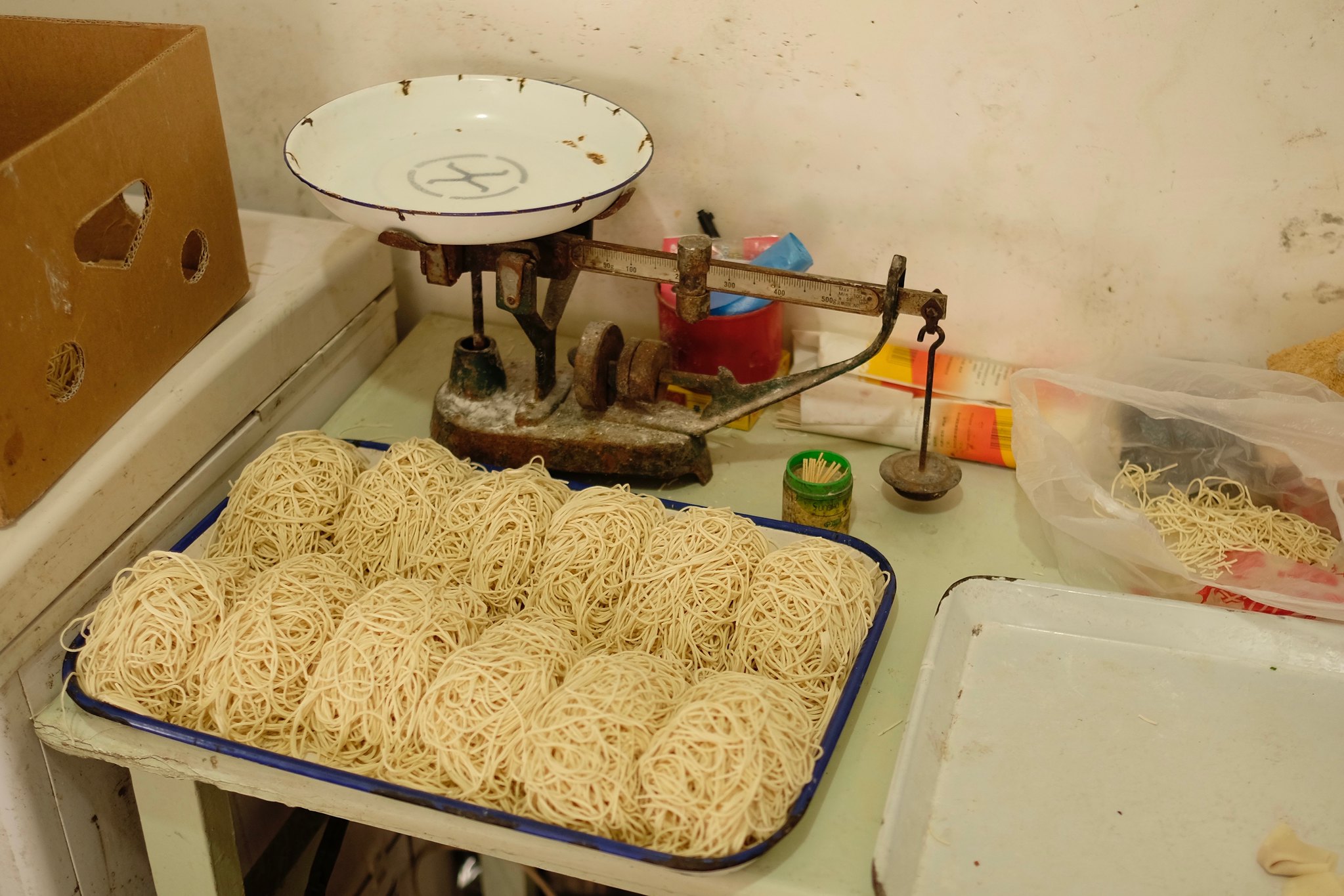
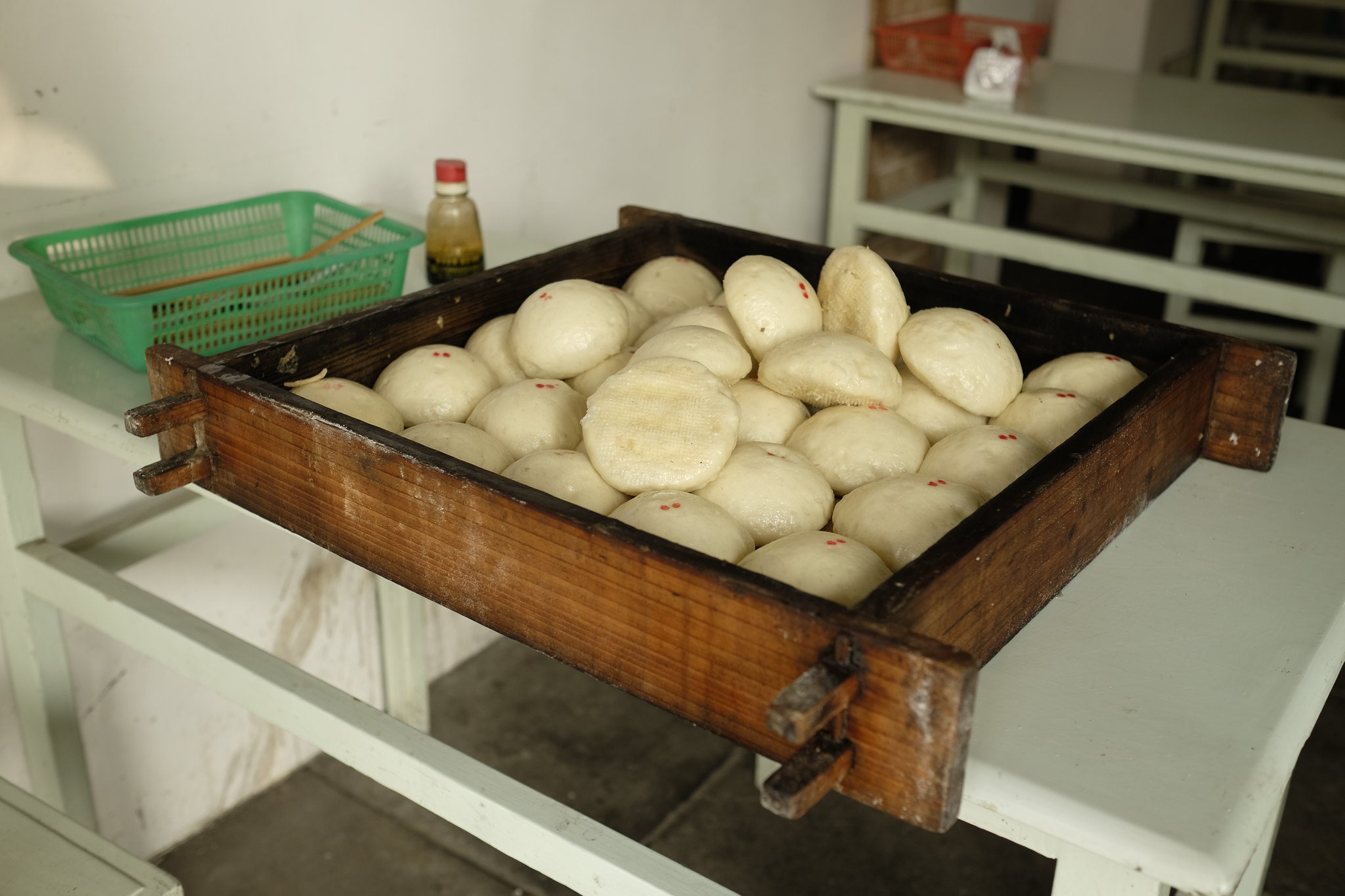
The restaurant is particularly busy just before Chinese New Year with customers stocking up on special shoutau buns.
餐馆在过年前几天特别忙,因为客人纷纷置办特别的寿桃包。
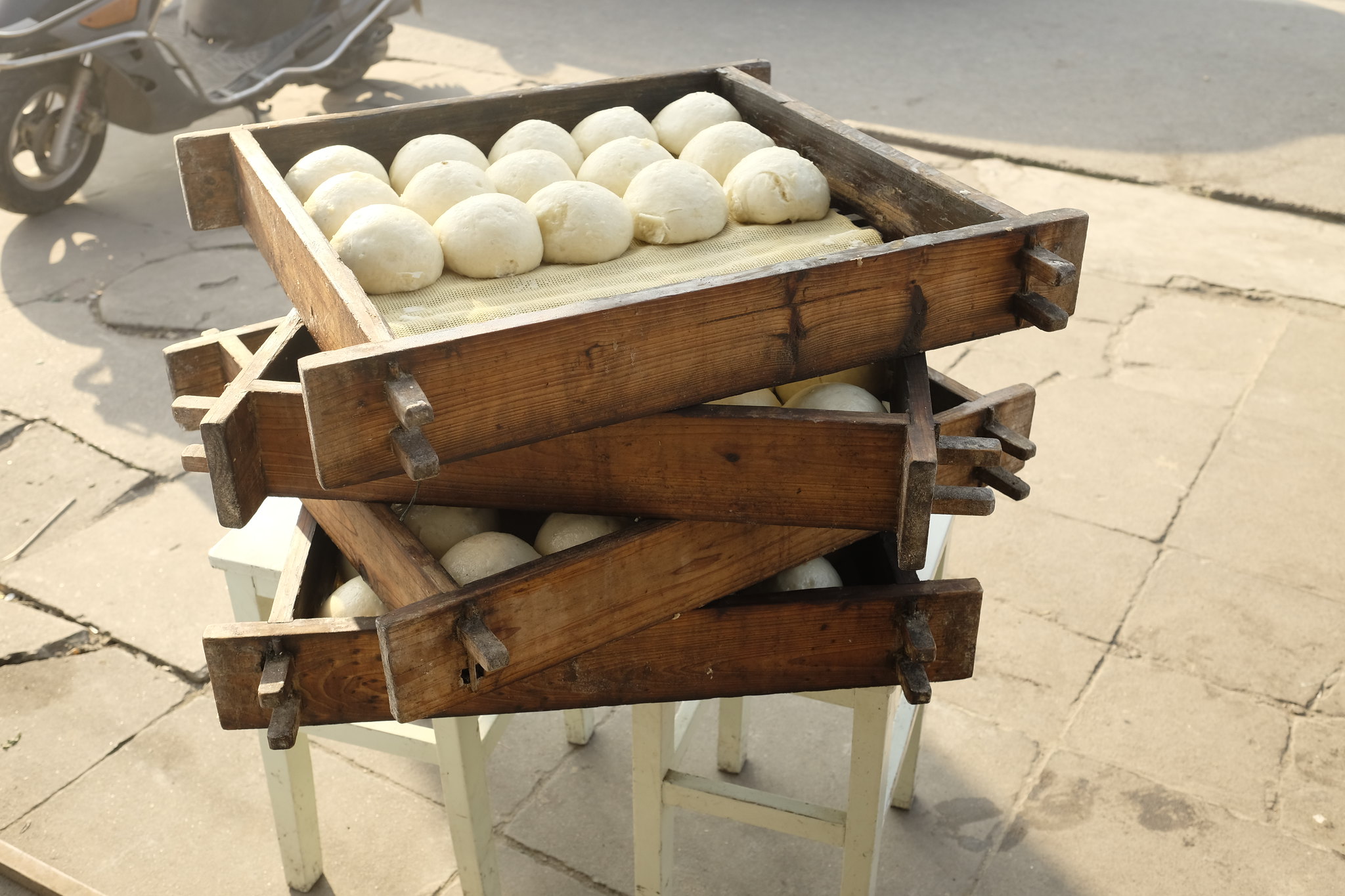
Translated into English, shoutau (寿桃) means “peaches of immortality”, so called due to their mystic virtue of conferring longevity on all who eat them (a common theme in Chinese art).
寿桃翻译成英文的意思是”不朽的桃子“,这样的称呼源于它们能赐福所有食用者长寿的神秘功效(它也是中国艺术的一个常见主题)。
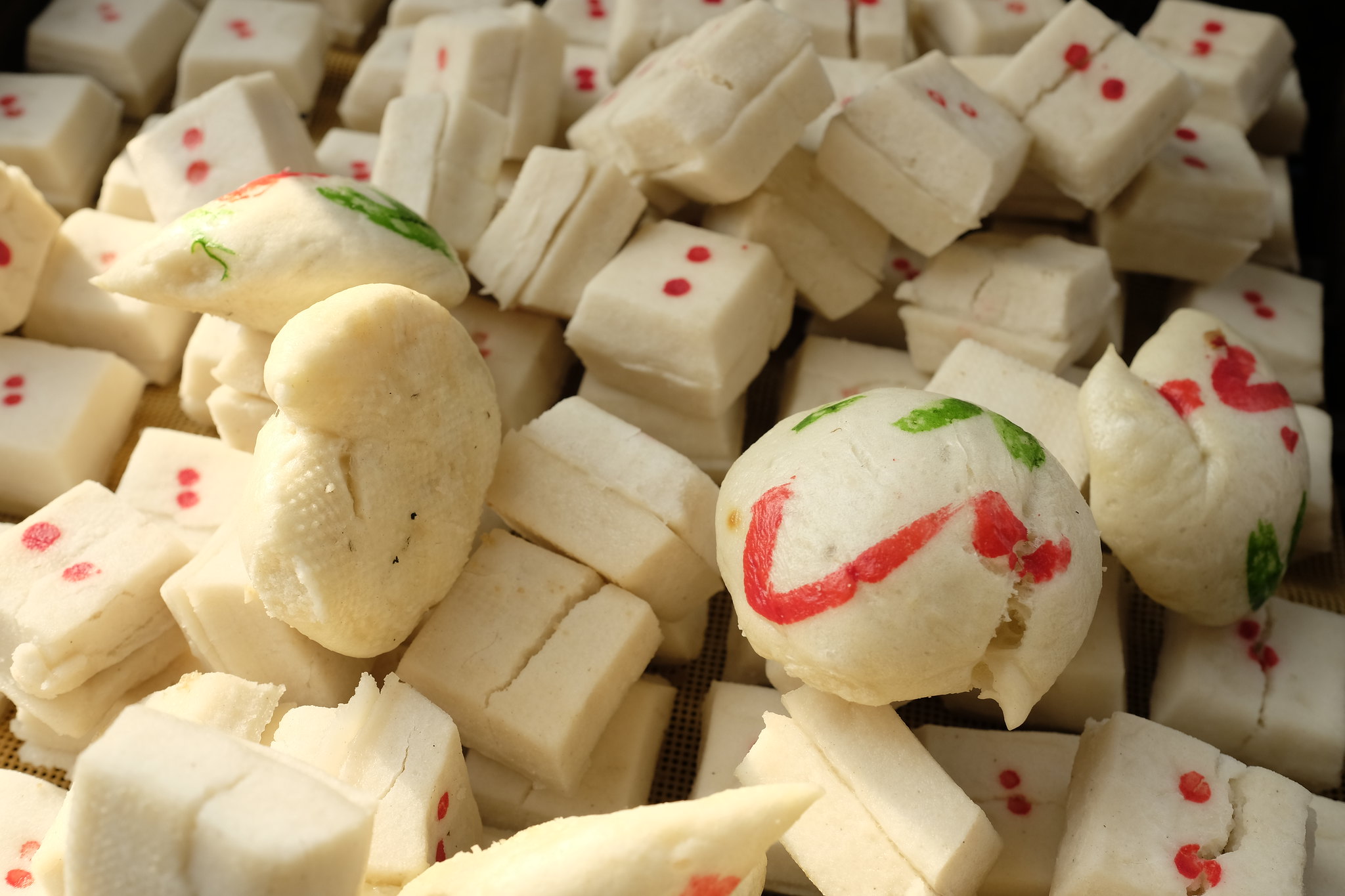
In the popular Chinese fantasy novel Journey to the West, the Monkey King is stationed as the Protector of the Peaches and ends up stealing one in order to prolong his own life leading to much mischief!
